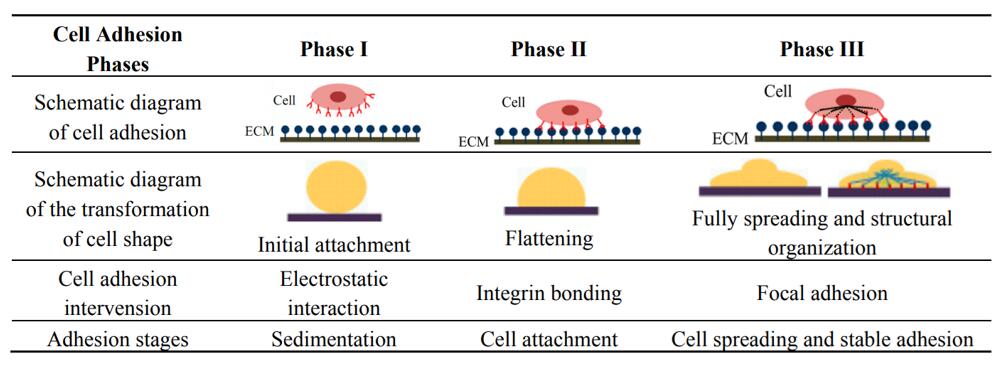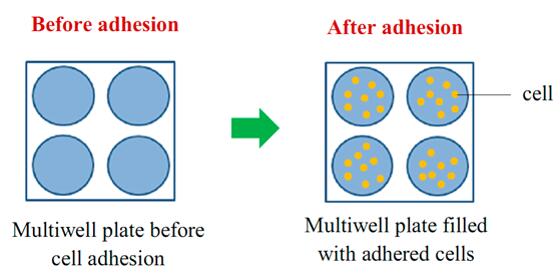Cell adhesion, the binding of a cell to the extracellular matrix (ECM), other cells, or specific surfaces, is crucial for cell growth, survival, and intercellular communication. This process involves intricate biological events, including the three-dimensional reorganization of the cytoskeleton, biochemical reactions within the cell, and alterations in cell surface molecules. Highly metastatic cancer cells are thought to possess enhanced adhesion capabilities, facilitating their migration to establish new tumors in the body. Cell adhesion assays are frequently employed to assess the metastatic potential of tumor cells and to evaluate the impact of treatments, such as exposure to chemicals, on cell adhesion ability.
Table 1. Evaluation of passive in vitro cell adhesion intervention and stages [1]

Cell adhesion assays are typically categorized into two main types based on experimental conditions: [2]
 Figure 1. Static adhesion (e.g., wash assay technique) [1]
Figure 1. Static adhesion (e.g., wash assay technique) [1]
 Figure 2. Flow adhesion (e.g., microfluidic technique) [1]
Figure 2. Flow adhesion (e.g., microfluidic technique) [1]
Two types Cell Adhesion Assay from Creative Bioarray allows to analyze the effect of drugs that could affect the physiological interaction between tumor and extracellular matrix or other cells.
References:
1. Khalili AA, Ahmad MR. A Review of Cell Adhesion Studies for Biomedical and Biological Applications. Int J Mol Sci. 2015;16(8):18149-18184. Published 2015 Aug 5. doi:10.3390/ijms160818149
2. Kucik DF, Wu C. Cell-adhesion assays. Methods Mol Biol. 2005;294:43-54. doi:10.1385/1-59259-860-9:043
Online Inquiry